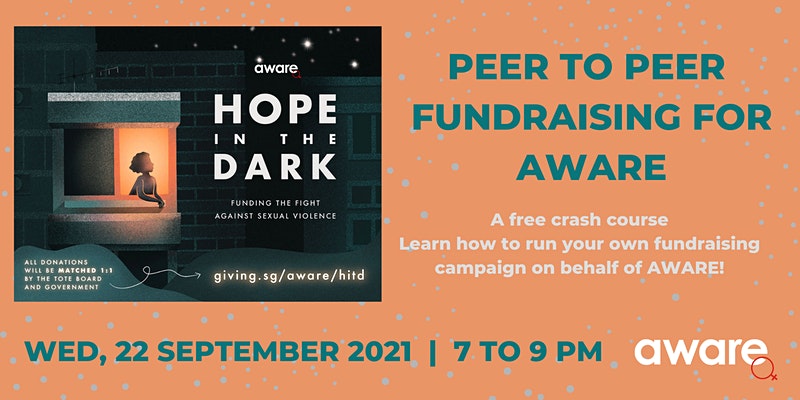This op-ed was originally published in The Straits Times on October 4 2021.
The recent allegations made against BooksActually’s founder Kenny Leck have foregrounded the many structural issues that make start-ups and small and medium-sized enterprises (SMEs) vulnerable to workplace harassment and bullying.
Mr Leck’s alleged abuses of power, according to numerous former employees in an article by Rice Media, include consistently hiring female staff much younger than himself; making overt advances upon these younger employees; denying or delaying salaries and depriving employees of formally designated breaks from work; and even taking steps to isolate his colleague and wife Renee Ting from her family members.
In the wake of the report, Mr Leck, who has denied the allegations, said he will transfer ownership of the store and its publishing arm, Math Paper Press, to his five employees.
Last Thursday, Ms Ting posted a further statement on social media; she said many had contacted her to share similar experiences in their workplaces and lives which they are afraid to speak about even privately because “the world is so loud and our voices feel so small”.
As the literary community in Singapore reels from these disturbing accounts – touching as they do upon workplace sexual harassment, exploitation of labour and even domestic abuse – many are asking: “How could this have happened?”
Yet an examination of the characteristics that determine the distribution of power within SMEs suggests that such a situation is more common than we would like to believe.
What makes small organisations fertile ground for abuse?
SMEs differ from large organisations in crucial ways, and not all these differences are beneficial to their employees.
Many owner-managers of SMEs claim that, being less encumbered by the bureaucracies of larger organisations, they are able to enjoy reduced management-worker distance, and are thus able to resolve worker problems more effectively and efficiently. But while this may be the case for some SMEs, it is still far from a universal experience.
Based on extensive research, and Aware’s own experience supporting clients via our Workplace Harassment and Discrimination Advisory, we have identified three unique challenges that SMEs face that make them fertile ground for abuse.
Attitudes and allocations
First, SMEs differ from large organisations in their attitudes and resource allocations towards developing employment frameworks. In an SME, a human resource policy and/or HR department (even if made up of one person) is often seen as a superfluous expense that the company can get by without.
A perception that the HR function is not specialised also contributes to the belief among SMEs that managers can deal with employee issues on their own. A survey conducted in the United Kingdom in 2013 found that HR specialists existed in less than 30 per cent of SMEs – as low as 15 per cent in owner-managed family businesses. No comparable data seems to be available for Singapore, but we can reasonably expect SMEs in Singapore not to be vastly different from their UK counterparts.
In July last year, Aware and an independent third-party consultant interviewed seven SMEs from different sectors,
such as e-commerce and home cleaning, to understand the unique challenges they faced in preventing and managing workplace harassment.
One of the owner-manager interviewees told us that the void created by a lack of HR policies is typically filled by his own instincts: “I rely on my past experience – and I don’t have too much training or expertise on the topic.”
Yet without a professional policy on workplace harassment, basing the prevention and management of workplace harassment purely on intuition can crack the door open for victim-blaming attitudes.
Informal culture, lack of policy
The second unique characteristic of SMEs that makes them prone to abuse is their typically informal, even familial, culture.
This culture extends to how SMEs treat employment relations: Rather than having standardised employment conditions, employees’ experiences in SMEs can be individualised and contingent upon personal relationships with their bosses. As one of the employees interviewed for the Aware study said: “If I have a good relationship with my manager, I am able to talk about issues. If not, then it is hard to bring these things up.”
The informality creates a lopsided dynamic whereby employees’ personal relationship with their manager determines whether or not they can report inappropriate behaviour and receive the support they need. Meanwhile, managers’ decisions, behaviours and treatment of employees remain free of the scrutiny characteristic of formal employment relationships.
Unchecked power, as plenty of research shows, changes how people make sense of their worlds, in ways that neuroscientists and psychologists believe explain workplace harassment.
Researchers have found that people in power consider others’ perspectives less frequently. They have also found that power gives people an “illusory” sense of control (that is, the belief that one has the ability to influence outcomes that are actually beyond one’s reach) and prompts people to presume sexual interest where it does not exist.
Attempts to regulate employee relations in SMEs are often met with objections, with critics pointing to compliance costs associated with adapting to new rules and obligations.
There may be a grain of truth here, since SMEs often lack the necessary resources or expertise of in-house human resources. Many owner-managers also loathe measures that interfere with their managerial prerogative, claiming that time spent on managing employee relations is time away from building their businesses and brands.
Finally, while Singapore’s Protection from Harassment Act covers harassment, there is no specific focus on workplace sexual harassment. The Tripartite Alliance for Fair and Progressive Employment Practices’ Advisory on Workplace Harassment is not legally enforceable. As a result, there is no regulatory pressure on SMEs to adopt workplace harassment policies.
SMEs do not have the wherewithal to get outside support – unlike multinational corporations, which may be held to workplace harassment laws in their countries of origin – and hire external help to write policies and provide employees with training on appropriate workplace behaviours.
Three big changes
What needs to change? We need three big changes to disrupt “business as usual” in start-ups and small businesses.
First, Singapore should introduce workplace harassment legislation that places a non-negotiable legal responsibility on employers to prevent and manage workplace harassment. Without this legal duty, most SMEs will not take the necessary steps to address workplace harassment.
An effective way to do this may be to include provisions in the forthcoming anti-discrimination Act to make companies accountable for workplace harassment if they are unable to show that they took reasonable steps to prevent it. This is a common approach in other jurisdictions, such as the UK and Australia.
Second, the vast power differential between leaders and subordinates, especially in start-ups and small businesses, needs to be minimised. Research shows that accountability in the form of policies is often an effective constraint on unchecked power. All start-ups and SMEs should be provided with support to frame HR policies, train employees on their employment rights, and assure employees that managers will be held accountable for any abuses of power.
Finally, we need to provide a stronger external avenue that victims of workplace harassment and those experiencing a denial of employment rights can approach to file complaints, receive advice on their options and raise confidential concerns without alerting their employers.
SMEs play an essential role within the landscape of Singapore’s economy (making up 99 per cent of all enterprises and supporting 72 per cent of total employment in Singapore), and the “David versus Goliath” narrative frequently associated with them is inherently stirring. But without specifically helping SMEs tackle workplace harassment, we are unlikely to make our workplaces safe enough for women and other employees who may be vulnerable to abuses of power.
Shailey Hingorani, Head of Research and Advocacy, AWARE





